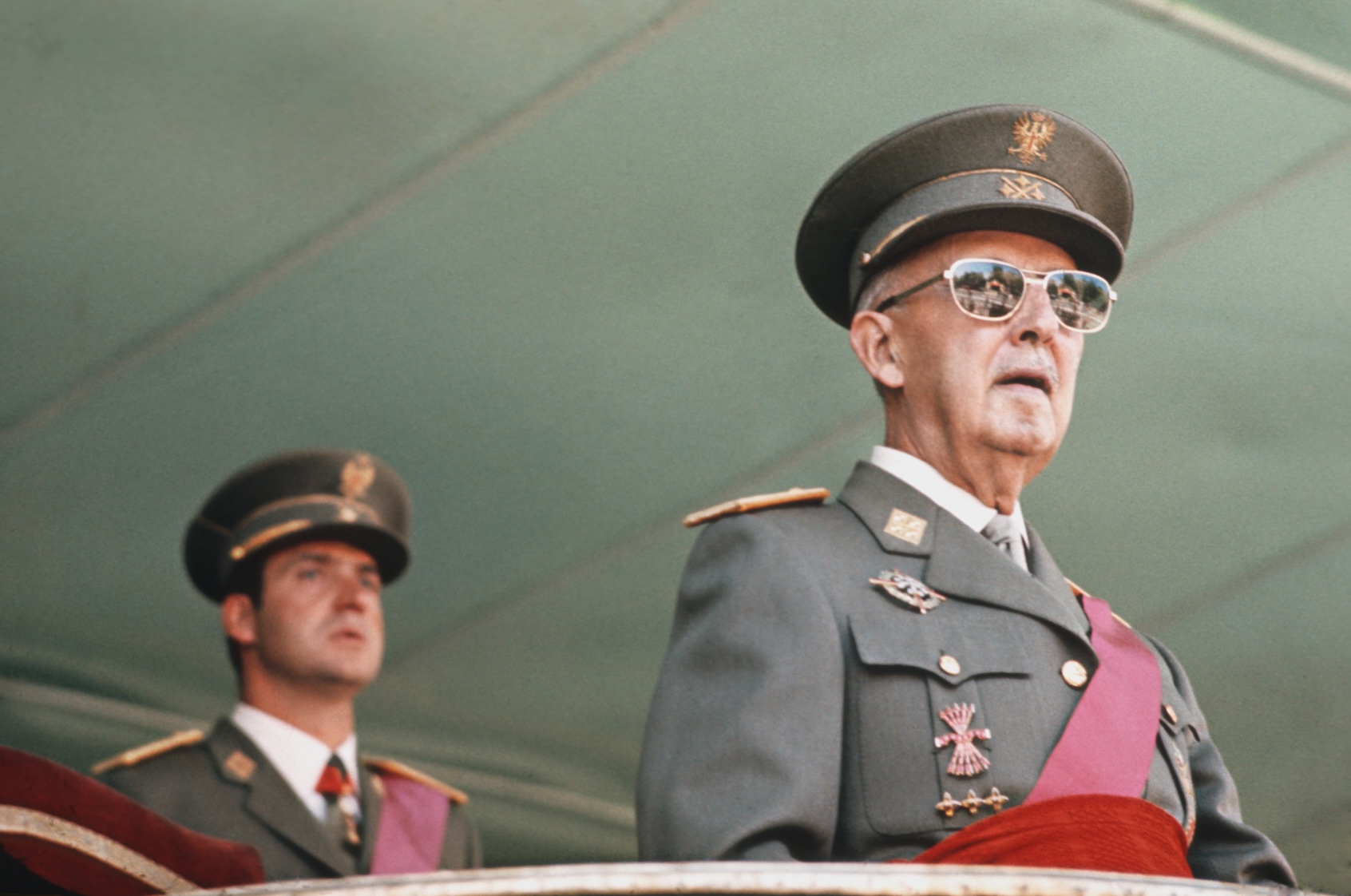World
American Far Right Finds Inspiration in Franco’s Legacy

A growing fascination with the legacy of Francisco Franco, the former dictator of Spain, has emerged among elements of the American far right. This trend reflects a complex relationship between authoritarian movements in the United States and right-wing politics in Europe. Figures such as Donald Trump and his supporters are drawing on historical models that include Franco, despite the latter’s death over 50 years ago.
The connection between contemporary American politics and European authoritarianism is not straightforward. Right-wing activists in Europe often look to Trump for inspiration, even as his influence appears to wane. This ongoing dynamic raises questions about the nature of these political relationships and their implications for democracy.
Elon Musk’s recent actions, including his support for controversial figures like Tommy Robinson, highlight the American right’s interest in European politics. Musk’s engagement in the UK political sphere has drawn criticism, portraying him as out of touch with the realities of contemporary British governance. Similarly, attempts by JD Vance, Marco Rubio, and others to influence the German elections on behalf of the far-right Alternative for Germany (AfD) proved ineffective, underscoring a lack of understanding of local political contexts.
Viktor Orbán, Hungary’s Prime Minister, remains closely aligned with the Trumpist movement while navigating a precarious position within the European Union. His administration has transformed Hungary into a quasi-one-party state, but it faces increasing isolation and internal challenges. Orbán’s strategy to balance relationships with both Trump and Vladimir Putin has not yielded the anticipated diplomatic successes, particularly regarding the ongoing conflict in Ukraine.
The historical parallels between Trump and 20th-century fascist leaders have been a subject of extensive analysis. Observers note that Trump’s rise, characterized by a combination of charisma and controversy, echoes the trajectories of figures like Adolf Hitler. In his biography of Hitler, historian Joachim Fest remarked on the absurdity of attributing “historical greatness” to a “comical buffoon.” This sentiment resonates with Trump’s political journey, where his unconventional style and audacity have garnered both fervent support and disdain.
While Trump’s demeanor may evoke comparisons to Benito Mussolini, their personalities and political strategies differ significantly. Mussolini was known for his intelligence and oratory skills, while Trump’s appeal rests more on his populist approach and media presence. Nonetheless, both figures attract admiration from modern right-wing factions, particularly in their ability to maintain power amid controversy.
Franco’s resurgence in discussion among American right-wing circles reflects a nostalgic admiration for his authoritarian rule. According to Dan Kaufman, who reviewed Paul Preston‘s book “Architects of Terror,” Franco’s regime is viewed by some as an effective model of governance, despite its brutality. This perspective aligns with a historical revisionism that downplays the regime’s violent repression and ideological extremism.
Franco’s regime was marked by its anti-Communist stance, which resonated with U.S. interests during the Cold War. The era saw a selective remembrance, with Franco’s past alliances with Hitler and Mussolini glossed over in favor of framing him as a bulwark against socialism. This narrative has persisted among certain factions in the American right, who view Franco as a national hero rather than a dictator.
The ongoing appeal of Franco among some American conservatives raises critical questions about the values and ideologies underpinning their political movements. Many right-wing figures grapple with the legacy of oppression that Franco’s rule embodied while simultaneously seeking to revive a sense of national identity and order they believe has been lost.
As discussions surrounding these historical figures continue, it is essential to recognize the implications of romanticizing authoritarian leadership. The admiration for Franco, a leader whose regime was characterized by violence, repression, and intolerance, serves as a stark reminder of the fragile nature of democratic institutions and the need for vigilance against the rise of extremist ideologies.
The fascination with authoritarian figures like Franco highlights the broader challenges facing democracies today. While the American right navigates its identity in the wake of Trump’s presidency, the lessons of history remain pertinent. Understanding the past is crucial in preventing a repeat of authoritarianism’s dark chapters, ensuring that the values of democracy and human rights are upheld in contemporary discourse.
-

 Science4 weeks ago
Science4 weeks agoInterstellar Object 3I/ATLAS Emits Unique Metal Alloy, Says Scientist
-

 Science1 month ago
Science1 month agoResearchers Achieve Fastest Genome Sequencing in Under Four Hours
-

 Politics1 month ago
Politics1 month agoAfghan Refugee Detained by ICE After Asylum Hearing in New York
-

 Business1 month ago
Business1 month agoIconic Sand Dollar Social Club Listed for $3 Million in Folly Beach
-

 Health1 month ago
Health1 month agoPeptilogics Secures $78 Million to Combat Prosthetic Joint Infections
-

 Business1 month ago
Business1 month agoMcEwen Inc. Secures Tartan Lake Gold Mine Through Acquisition
-

 Lifestyle1 month ago
Lifestyle1 month agoJump for Good: San Clemente Pier Fundraiser Allows Legal Leaps
-

 Science1 month ago
Science1 month agoMars Observed: Detailed Imaging Reveals Dust Avalanche Dynamics
-

 Health1 month ago
Health1 month agoResearcher Uncovers Zika Virus Pathway to Placenta Using Nanotubes
-

 World1 month ago
World1 month agoUS Passport Ranks Drop Out of Top 10 for First Time Ever
-

 Entertainment1 month ago
Entertainment1 month agoJennifer Lopez Addresses A-Rod Split in Candid Interview
-

 Business1 month ago
Business1 month agoSan Jose High-Rise Faces Foreclosure Over $182.5 Million Loan









